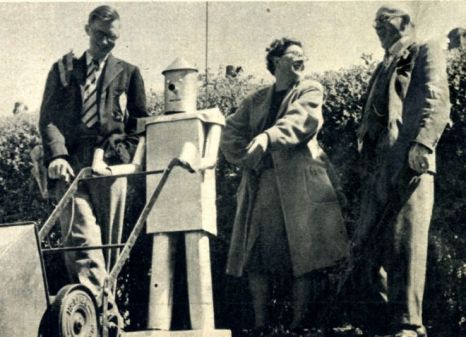After finishing this (often) funny book about an unfunny subject, I started on Martin Ford’s Rise of the Robots (excellent so far), which wonders if this new machine age will differ from the Industrial Age by not creating newer, better jobs to replace those disappeared by automation. So perhaps I’m thinking even more than usual about technological unemployment, especially in regards to the service sector, which, as Ford reminds, is where most Americans earn a living now and which is most prone to robotization. It isn’t so much a fear stoked by where Deep Learning is right now but where it may be a decade on. If it advances rapidly, how do we proceed?
In a Los Angeles Times piece, Jon Healey is concerned about the same after attending the Milken Global Conference panel on robotics. The opening:
Sometimes I wonder if I’m in the very last generation of newspaper reporters.
After hearing Jeremy Howard talk at a Milken Global Conference panel on robotics this week, however, I’m wondering if I’m in the very last generation of workers.
Howard is chief executive of Enlitic, which uses computers to help doctors make diagnoses. His technology relies on something known as machine learning, or the process by which a computer improves its own capabilities. He’s also a top data scientist, which gives him a much better view of what’s coming than most people have.
This year, Howard said, machines are better than humans at recognizing objects in an image. Now here’s the scary part. Compared to where they were in November, Howard said, they are 15 times faster in recognizing objects while being more accurate and using fewer computational resources. In five years, they will be 10,000 times faster.
“We are seeing order-of-magnitude improvements every few months,” Howard said. Similar leaps are starting to appear in computers’ ability to understand written text.
In five years’ time, a single computer could be hundreds or thousands of times better at that task than humans, Howard said. Combine it with other computers on a network, and the advantage becomes even more pronounced.
“Probably in your lifetime, certainly in your kids’ lifetime … computers will be better than humans at all these things,” he said. And within five years after that, they will be 1,000 times better.
Gulp.•
Tags: Jeremy Howard, Jon Healey

